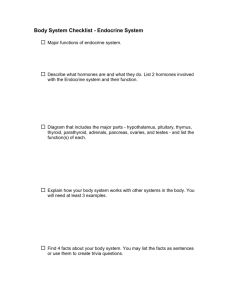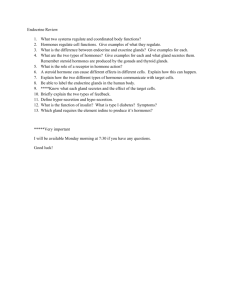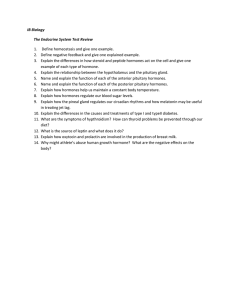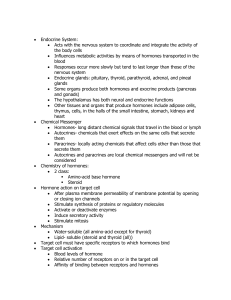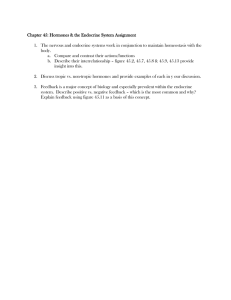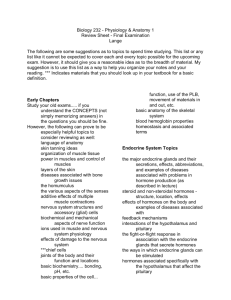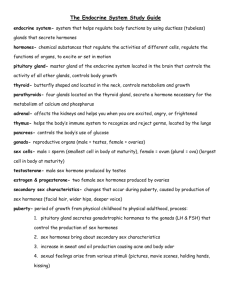Option D Human Physiology Notes IB Biology D.5 Hormones and
advertisement
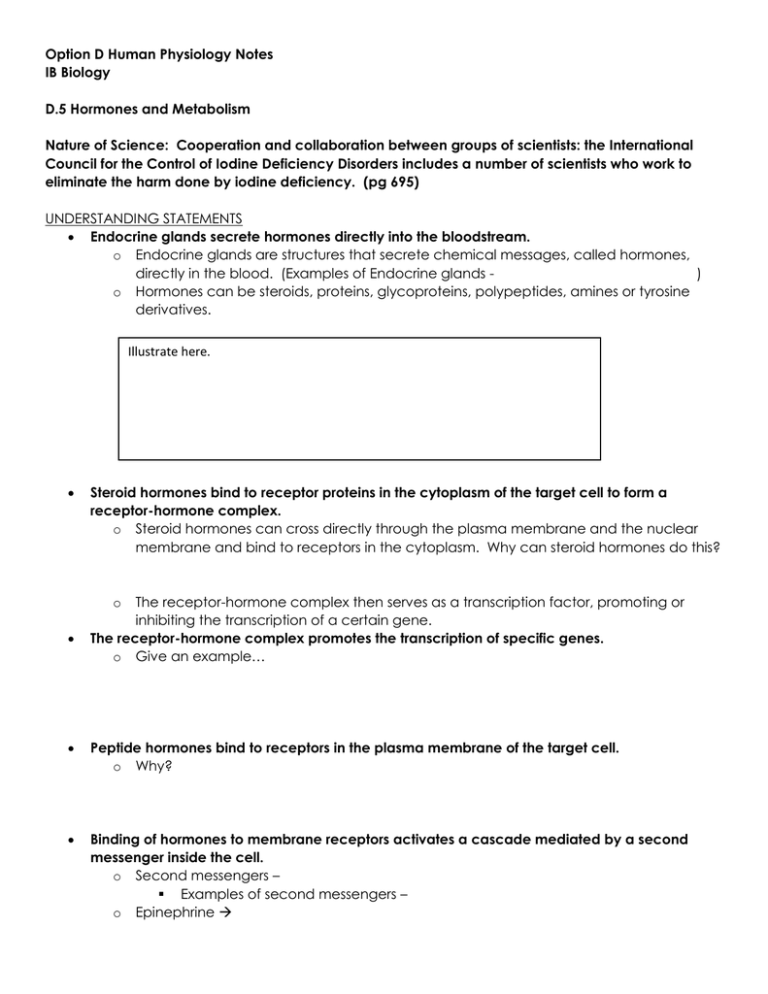
Option D Human Physiology Notes IB Biology D.5 Hormones and Metabolism Nature of Science: Cooperation and collaboration between groups of scientists: the International Council for the Control of Iodine Deficiency Disorders includes a number of scientists who work to eliminate the harm done by iodine deficiency. (pg 695) UNDERSTANDING STATEMENTS Endocrine glands secrete hormones directly into the bloodstream. o Endocrine glands are structures that secrete chemical messages, called hormones, directly in the blood. (Examples of Endocrine glands ) o Hormones can be steroids, proteins, glycoproteins, polypeptides, amines or tyrosine derivatives. Illustrate here. Steroid hormones bind to receptor proteins in the cytoplasm of the target cell to form a receptor-hormone complex. o Steroid hormones can cross directly through the plasma membrane and the nuclear membrane and bind to receptors in the cytoplasm. Why can steroid hormones do this? The receptor-hormone complex then serves as a transcription factor, promoting or inhibiting the transcription of a certain gene. The receptor-hormone complex promotes the transcription of specific genes. o Give an example… o Peptide hormones bind to receptors in the plasma membrane of the target cell. o Why? Binding of hormones to membrane receptors activates a cascade mediated by a second messenger inside the cell. o Second messengers – Examples of second messengers – o Epinephrine Hormones secreted by the pituitary control growth, developmental changes, reproduction and homeostasis. o Examples The hypothalamus controls hormone secretion by the anterior and posterior lobes of the pituitary gland. o What is the role of the hypothalamus? o Give an example of negative feedback involved in the control of secretion pituitary hormones. APPLICATIONS 1. 2.
